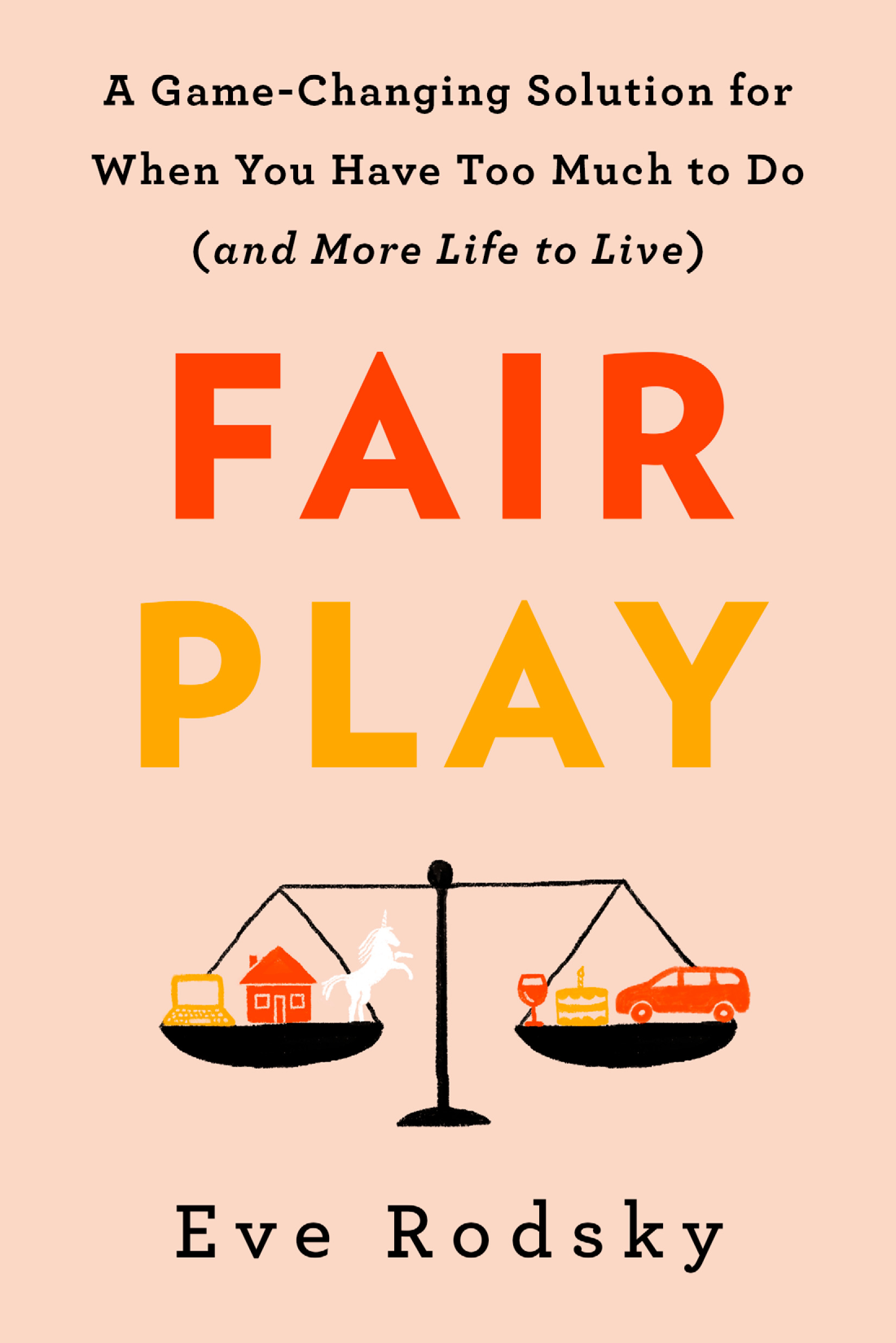
I was just pulling up to the departures gate at LAX, where I was catching an early morning flight to my one-day business meeting up in Seattle, when I got the following text from my husband, Seth: Some guy left his jacket and beer bottle on our lawn.
Weird. Gross. And, more importantly, what am I supposed to do about it from the road?
When I returned home 16 hours later and long after the sun had gone down, I’d forgotten about the text until I pulled into my driveway, and there they were sitting in the dark — some guy’s jacket and beer bottle on our lawn. Seriously? I began to seethe. As I unlocked the front door, I quickly tried to work out why.
I was reminded of the many girlfriends who had described “the text” and its spiritual cousin, “the email forward,” as trigger issues in their marriages — a correspondence comes through to both you and your partner from your child’s school, coach, music teacher, doctor’s office or the DMV, and your partner forwards it to you. The implication: I don’t have time to handle this — it’s on you.
That night, standing in the doorway to our bedroom, I understood that my husband expected me to put down my carry-on, grab a trash bag and a pair of rubber gloves, walk outside, pick up the jacket and beer bottle, throw them into the bag, walk the whole thing to the bin in the alley and return home. When I did just that, I made note of how long it took me to do this: 12 minutes. Of my time. That I’ll never get back. I briefly considered these 12 minutes multiplied by thousands of “this is on you” instances required to get through each of my days and began to understand acutely why so many women are running against the clock from the moment we wake up.
What might not be so clear, because it wasn’t to me that night, is: Why was this on me?
Why domestic work falls to women
The answer came to me 12 minutes later when I returned to our bedroom after cleaning up the mess in the front yard, still wearing rubber gloves: Seth was not valuing my time equally to his.
In my day job, I’m a Harvard-trained lawyer and mediator who works with families. But at my own home, I realized, I wasn’t cutting a very good deal for myself. Like so many women — whether they work outside the home or not — I was picking up more than my fair share of the slack in the running of our household. In heterosexual partnerships, women still do the bulk of childcare and domestic work — the National Survey of Families and Households showed that as recently as 2010, married mothers like myself and many of my friends did about 1.9 times the housework of married fathers.

It turned out that my husband (a good guy and progressive in many aspects of our life together — really!) took on less housework after our kids came along, just as a 2015 study in the Journal of Marriage and Family showed is common. I determined to find out why even men like him assume that domestic responsibilities should be so unevenly stacked. In my interviews and conversations on this topic over the last several years with more than 500 people — women and men in straight and same-sex relationships and from all U.S. Census categories in terms of ethnicity and socioeconomic status — overwhelmingly expressed a related idea that contributes to the same outcome: the notion that men’s time is finite and women’s time is infinite. And while women’s time is known to be treated as less valuable in the workplace (see the ongoing battle to achieve equal pay), according to my research, this mental discrepancy where men’s time is guarded as a finite resource (like diamonds) and women’s time is abundant (like sand) can feel even more stark at home and after kids.
So what’s the solution? In an attempt to make visible all the invisible and often unacknowledged work it takes to run a family, I created a document I proudly called the “Sh-t I Do List” that included every single thing I did day-to-day with a quantifiable time component. Tallying every brain-zapping, time-sucking detail of my domestic responsibilities was no small feat, but when I was finished — with the help of women all over the country who wrote in with their own list items — I’d enumerated and categorized 100 household tasks with 20 subtasks that totaled over 1,000 items of invisible work (from laundry to pet care to meal prep to birthday presents) that kept our happy home running smoothly.
When I sent my master list to Seth one triumphant afternoon, expecting a pat on the back (or at least a little recognition for a job well done), he’d texted me back a single emoji: 🙈.
Not even the courtesy of the full trio. Regardless, I got the message — he didn’t want to see, hear or speak of it.
My husband is a smart, caring guy. So why was it so hard for him to understand and appreciate how much extra work I was doing to benefit our family and the home — and the eventual burnout effect it was likely to have on me? Then it hit me: lists alone don’t work; but systems do.
How I fostered more fairness at home
For more than a decade, I’ve consulted with hundreds of families in my professional life by providing my expertise in organizational-management strategy. What if I applied these strategies in my own house by creating a new system in which every task that benefits our home is not only named and counted but also explicitly defined and specifically assigned?
I began to fantasize about what my life and the lives of all of my friends would look like if — in partnership with our spouses — we brought systematic function to what was currently a sh-t show of family dysfunction. I couldn’t think of a couple out there who wouldn’t benefit from a practical plan of action to optimize productivity and efficiency, as well as a new consciousness and language for thinking and talking about domestic life.
The result is a system I termed Fair Play, a figurative game played with your partner, where each partner holds certain “cards” that correspond to domestic tasks. Here are my four easy-to-follow rules that set you up to play.
Rule #1: All time is created equal.
Both partners need to reframe how you value time, and then commit to the goal of rebalancing the hours that domestic work requires between the two of you. The reality is that many straight couples, the mental load will continue to fall on the female partner as the list-maker/planner/household manager until both recognize that time is a limited commodity. You both only have 24 hours in a day. Only when you both believe that your time is equally valuable will the division of labor shift toward parity in your relationship.
Rule #2: Reclaim your right to be interesting.
When your time and your mind become fully focused on the tasks required to run a household, it’s easy to feel like your personal passions aren’t priorities. Both partners deserve to reclaim or discover the interests that make you each uniquely you, beyond your roles as wonderful parents and partners. And Fair Play requires you both to demand time and mental space to explore this right — and to honor that right for each other.
Rule #3: Start where you are now.
You cannot get to where you want to go without first understanding: Who am I? Who am I really in a relationship with? And what is my specific intention for engaging my partner in renegotiating the household workload? Ask yourself: Am I seeking more acknowledgment of everything I do for us? More efficiency so I can have more time for myself? Less resentment and a greater sense of fairness? When you have a clear sense of what you want, you’re more likely to get it. Start the conversation by laying it all out to your partner.
Rule #4: Establish your values and standards.
Take stock of your domestic ecosystem and choose what you want to do in service of the home based on what’s most valuable to you and your partner. Just because you’re in the habit of doing a task doesn’t mean it’s a task that absolutely needs to be done. Maybe you value cooking a homemade breakfast for your child each morning — or maybe, when you and your partner consider what’s most important to you, you decide you’d rather have a few minutes in bed to check in before you start the day, and fruit and yogurt to-go are perfectly fine. After you and your partner determine what “cards” — tasks that must be done because they hold value to your family — are in play, you must mutually agree on a reasonable standard for how those tasks are handled. It’s not enough for your spouse to say he’ll be in charge of the “baseball” card — he has to pack the sports bag with all the necessary gear and snacks, arrange for pick-up and drop-off from practice, make sure all the games are on the family calendar and then show up on the right field at the right time. The more you invest in unpacking the details, the more you will be rewarded.
It didn’t happen overnight, but starting with Rule #1, attitudes started to shift within our home. After the drunk guy’s jacket incident, my husband began to notice and appreciate that we both have the same number of minutes in a day. (The “All Time Is Created Equal” sign that I posted on the bathroom mirror did help to hammer home the point.) It hasn’t always been easy; a shift in thinking takes deliberate effort. Whenever Seth and I would revert to our old, familiar dialogue like, “I don’t have time… so, can you?” or “I don’t have time either, but I guess this is on me,” I’d attempt to reframe the conversation with words that honor and respect how we each choose to spend our finite time. I finally understood that how I’d spent those particular 12 minutes picking up the drunk guy’s jacket and beer bottle was really irrelevant. I wasn’t interested in keeping a minute-by-minute scorecard with my husband; I simply wanted both of us to begin to value our time equally — and to act accordingly.
From FAIR PLAY by Eve Rodsky, published by G. P. Putnam’s Sons, an imprint of Penguin Publishing Group, a division of Penguin Random House, LLC. Copyright (c) 2019 by by Unicorn Space, LLC.
More Must-Reads from TIME
- Cybersecurity Experts Are Sounding the Alarm on DOGE
- Meet the 2025 Women of the Year
- The Harsh Truth About Disability Inclusion
- Why Do More Young Adults Have Cancer?
- Colman Domingo Leads With Radical Love
- How to Get Better at Doing Things Alone
- Michelle Zauner Stares Down the Darkness
Contact us at letters@time.com